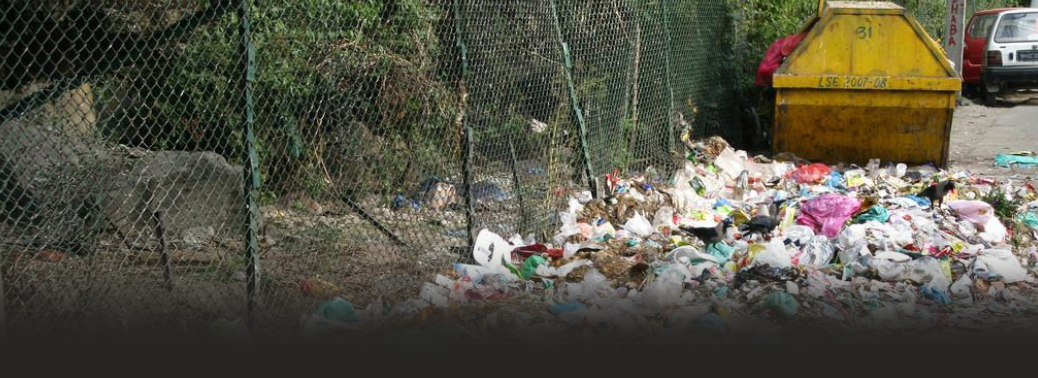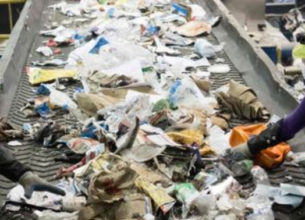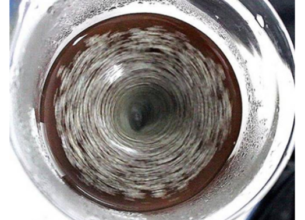PLASTIC WASTE MANAGEMENT RULES, 2016, (AMENDED 2018)
10, Jul 2019

Prelims level : Environment: Pollution and Waste Management
Mains level : Conservation, Environmental Pollution and Degradation, Environmental Impact Assessment.
Context:
- The Central Pollution Control Board (CPCB) has pulled up 52 companies — including Amazon, Flipkart, Danone Foods and Beverages and Patanjali Ayurveda Limited — for not specifying a time line or a plan to collect the plastic waste that results from their Business Activities.
Plastic Waste- Stats:
- Plastic Infrastructure Report, 2017, India consumes close to 12.8 million tonnes of plastic per annum, of which, close to 5 million tonnes is rendered as waste every year.
- 70% of the plastic waste industry is informal in nature and no action plan for formalising the industry has been pushed in the last two years.
Issues with Policies on Plastic:
- Under Good and Service Tax (GST), plastic waste was put under a 5 per cent bracket, hurting the informal sector, which already lacks a concrete action plan.
- The status of plastic waste management in the country is grim even after the rules gave emphasis on Banning Plastics below 50 Microns, phasing out use of multi-layered packaging and introducing Extended Producer Responsibility (EPR) for producers, importers and brand owners to ensure environmentally sound management of plastic products until the end of their lives.
Features of Plastic Waste Management Rules:
- Companies that use plastic in their processes — packaging and production — have a responsibility to ensure that any resulting plastic waste is safely disposed of.
Extended Producers Responsibility (EPR)
- EPR is a practice and policy approach in which producers are made responsible for collecting and processing their manufactured products upon end of their lifetime. Responsibility may be fiscal, physical or a combination of both.
- Companies have to specify collection targets as well as a time line for this process within a year of the rules coming into effect.
- The Rules also mandate the responsibilities of local bodies, gram panchayats, waste generators and retailers to manage such waste.
Issues with Plastic Waste Management Rules:
- Rule 15 (Explicit pricing of carrying bags) has been omitted in the amendment.
It earlier required every vendor, who sold commodities in a carry bag, to register with their respective urban local body and pay a minimum fee of Rs 48,000 annum (4000/month) after the announcement of the bye-laws. - Under Section 9 (3), the term ‘Non-Recyclable Multi-Layered Plastic if any’ has been substituted by ‘multi-layered plastic which is non-recyclable or non-energy recoverable or with no alternate use’. This gives plastic producers a scope to argue that their products can be put to some other use, if not recycled.
Issue with Extended Producers Responsibility (EPR):
- As per CSE’s publication on Model Framework for Segregation, major changes required in the plastic waste rules are concerning EPR.
- EPR targets have to be accounted for at the national level, irrespective of which state the products are sold or consumed in. The amendment does not address these issues.
- No example of deposit refund scheme system has been implemented in any state.
- The producers have been reluctant in taking the onus of the waste despite various interventions across the country by government and civic societies.
Model Framework for Offset Mechanism:
- The amount of equivalent plastic and packaging that the producers and brand owners are able to recover and recycle will be used as an offset.
- Such mechanisms will be product and brand neutral and the collection will not be confined to the packaging of the producer or brand owners’ products only and can be carried out in any location(s) of their choosing.
- This offset mechanism must be included EPR in the rules by the producers and brand owners: By working with the government for promoting segregation at source through propagation;
- Taking the onus of implementation and devising their EPR plans and setting up a team to monitor.
- Supporting the implementation of segregation and account-keeping of plastic waste.
Concept of Producer Responsibility Organisations (PROs):
- A PRO is a third-party organisation that facilitates the responsibility of producers to take back waste from open market, recycle or process, and file compliance.
- With a PRO, producers do not physically take back the product, but instead support the process financially.
PRO In E- Waste and Plastic Waste:
- PROs have been tried and tested when it comes to managing e-waste.
- Their roles and activities are defined in the Guidelines for PRO under e-waste management rules.
- PRO does not find a mention in the Plastic Waste Management (Amendment) Rules, 2018.
- CPCB has started registering PROs for plastic waste management.
Global Examples of PROs Operating Successfully:
- Europe has set precedent when it comes to plastic-generating corporations establishing PROs to collect plastics and facilitate processing.
- Long-term agreements are facilitated, enabling PROs to establish infrastructure for collection, guaranteed by secured reimbursements from the brands liable for collection as per the policy.
Problems with PROs:
- PRO would experience great challenges on the ground due to low level of source segregation
- Success would lie in creating a strong monitoring and reporting structure for both PROs and recyclers.
Conclusion:
- It is imperative to develop a Phase-Wise Implementation of the EPR programme with yearly targets and a system of nationwide offsets and credit to ensure effective implementation of the rules.
- With a worldwide crisis due to plastic waste, India has to find a way to curb its plastic pollution at the earliest and that is only possible when all the stakeholders take the responsibility of ensuring minimisation, reuse and recycling of plastic to the maximum









